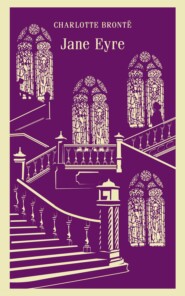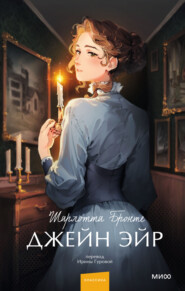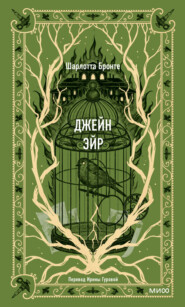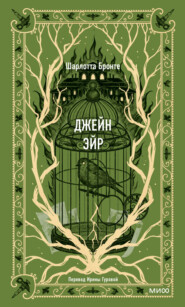По всем вопросам обращайтесь на: info@litportal.ru
(©) 2003-2024.
✖
Shirley
Настройки чтения
Размер шрифта
Высота строк
Поля
“Peter is worth a scene, and shall have it, if he likes, one day,” she whispered to her friend.
And now – solemn and sombre as to their colour, though bland enough as to their faces – appeared at the dining-room door the three rectors. They had hitherto been busy in the church, and were now coming to take some little refreshment for the body, ere the march commenced. The large morocco-covered easy chair had been left vacant for Dr. Boultby. He was put into it, and Caroline, obeying the instigations of Shirley, who told her now was the time to play the hostess, hastened to hand to her uncle’s vast, revered, and, on the whole, worthy friend, a glass of wine and a plate of macaroons. Boultby’s churchwardens, patrons of the Sunday school both, as he insisted on their being, were already beside him; Mrs. Sykes and the other ladies of his congregation were on his right hand and on his left, expressing their hopes that he was not fatigued, their fears that the day would be too warm for him. Mrs. Boultby, who held an opinion that when her lord dropped asleep after a good dinner his face became as the face of an angel, was bending over him, tenderly wiping some perspiration, real or imaginary, from his brow. Boultby, in short, was in his glory, and in a round, sound voix de poitrine he rumbled out thanks for attentions and assurances of his tolerable health. Of Caroline he took no manner of notice as she came near, save to accept what she offered. He did not see her – he never did see her; he hardly knew that such a person existed. He saw the macaroons, however, and being fond of sweets, possessed himself of a small handful thereof. The wine Mrs. Boultby insisted on mingling with hot water, and qualifying with sugar and nutmeg.
Mr. Hall stood near an open window, breathing the fresh air and scent of flowers, and talking like a brother to Miss Ainley. To him Caroline turned her attention with pleasure. “What should she bring him? He must not help himself – he must be served by her.” And she provided herself with a little salver, that she might offer him variety. Margaret Hall joined them; so did Miss Keeldar. The four ladies stood round their favourite pastor. They also had an idea that they looked on the face of an earthly angel. Cyril Hall was their pope, infallible to them as Dr. Thomas Boultby to his admirers. A throng, too, enclosed the rector of Briarfield – twenty or more pressed round him; and no parson was ever more potent in a circle than old Helstone. The curates, herding together after their manner, made a constellation of three lesser planets. Divers young ladies watched them afar off, but ventured not nigh.
Mr. Helstone produced his watch. “Ten minutes to two,” he announced aloud. “Time for all to fall into line. Come.” He seized his shovel hat and marched away. All rose and followed en masse.
The twelve hundred children were drawn up in three bodies of four hundred souls each; in the rear of each regiment was stationed a band; between every twenty there was an interval, wherein Helstone posted the teachers in pairs. To the van of the armies he summoned,—
“Grace Boultby and Mary Sykes lead out Whinbury.
“Margaret Hall and Mary Ann Ainley conduct Nunnely.
“Caroline Helstone and Shirley Keeldar head Briarfield.”
Then again he gave command,—
“Mr. Donne to Whinbury; Mr. Sweeting to Nunnely; Mr. Malone to Briarfield.”
And these gentlemen stepped up before the lady-generals.
The rectors passed to the full front; the parish clerks fell to the extreme rear. Helstone lifted his shovel hat. In an instant out clashed the eight bells in the tower, loud swelled the sounding bands, flute spoke and clarion answered, deep rolled the drums, and away they marched.
The broad white road unrolled before the long procession, the sun and sky surveyed it cloudless, the wind tossed the tree boughs above it, and the twelve hundred children and one hundred and forty adults of which it was composed trod on in time and tune, with gay faces and glad hearts. It was a joyous scene, and a scene to do good. It was a day of happiness for rich and poor – the work, first of God, and then of the clergy. Let England’s priests have their due. They are a faulty set in some respects, being only of common flesh and blood like us all; but the land would be badly off without them. Britain would miss her church, if that church fell. God save it! God also reform it!
Chapter XVII
The School-Feast
Not on combat bent, nor of foemen in search, was this priest-led and woman-officered company; yet their music played martial tunes, and, to judge by the eyes and carriage of some – Miss Keeldar, for instance – these sounds awoke, if not a martial, yet a longing spirit. Old Helstone, turning by chance, looked into her face; and he laughed, and she laughed at him.
“There is no battle in prospect,” he said; “our country does not want us to fight for it. No foe or tyrant is questioning or threatening our liberty. There is nothing to be done. We are only taking a walk. Keep your hand on the reins, captain, and slack the fire of that spirit. It is not wanted, the more’s the pity.”
“Take your own advice, doctor,” was Shirley’s response. To Caroline she murmured, “I’ll borrow of imagination what reality will not give me. We are not soldiers – bloodshed is not my desire – or if we are, we are soldiers of the Cross. Time has rolled back some hundreds of years, and we are bound on a pilgrimage to Palestine. But no; that is too visionary. I need a sterner dream. We are Lowlanders of Scotland, following a Covenanting captain up into the hills to hold a meeting out of the reach of persecuting troopers. We know that battle may follow prayer; and as we believe that in the worst issue of battle heaven must be our reward, we are ready and willing to redden the peat moss with our blood. That music stirs my soul; it wakens all my life; it makes my heart beat – not with its temperate daily pulse, but with a new, thrilling vigour. I almost long for danger – for a faith, a land, or at least a lover to defend.”
“Look, Shirley!” interrupted Caroline. “What is that red speck above Stilbro’ Brow? You have keener sight than I. Just turn your eagle eye to it.”
Miss Keeldar looked. “I see,” she said; then added presently, “there is a line of red. They are soldiers – cavalry soldiers,” she subjoined quickly. “They ride fast. There are six of them. They will pass us. No; they have turned off to the right. They saw our procession, and avoid it by making a circuit. Where are they going?”
“Perhaps they are only exercising their horses.”
“Perhaps so. We see them no more now.”
Mr. Helstone here spoke.
“We shall pass through Royd Lane, to reach Nunnely Common by a short cut,” said he.
And into the straits of Royd Lane they accordingly defiled. It was very narrow – so narrow that only two could walk abreast without falling into the ditch which ran along each side. They had gained the middle of it, when excitement became obvious in the clerical commanders. Boultby’s spectacles and Helstone’s Rehoboam were agitated; the curates nudged each other; Mr. Hall turned to the ladies and smiled.
“What is the matter?” was the demand.
He pointed with his staff to the end of the lane before them. Lo and behold! another, an opposition, procession was there entering, headed also by men in black, and followed also, as they could now hear, by music.
“Is it our double?” asked Shirley, “our manifold wraith? Here is a card turned up.”
“If you wanted a battle, you are likely to get one – at least of looks,” whispered Caroline, laughing.
“They shall not pass us!” cried the curates unanimously; “we’ll not give way!”
“Give way!” retorted Helstone sternly, turning round; “who talks of giving way? You, boys, mind what you are about. The ladies, I know, will be firm. I can trust them. There is not a churchwoman here but will stand her ground against these folks, for the honour of the Establishment. – What does Miss Keeldar say?”
“She asks what is it.”
“The Dissenting and Methodist schools, the Baptists, Independents, and Wesleyans, joined in unholy alliance, and turning purposely into this lane with the intention of obstructing our march and driving us back.”
“Bad manners!” said Shirley, “and I hate bad manners. Of course, they must have a lesson.”
“A lesson in politeness,” suggested Mr. Hall, who was ever for peace; “not an example of rudeness.”
Old Helstone moved on. Quickening his step, he marched some yards in advance of his company. He had nearly reached the other sable leaders, when he who appeared to act as the hostile commander-in-chief – a large, greasy man, with black hair combed flat on his forehead – called a halt. The procession paused. He drew forth a hymn book, gave out a verse, set a tune, and they all struck up the most dolorous of canticles.
Helstone signed to his bands. They clashed out with all the power of brass. He desired them to play “Rule, Britannia!” and ordered the children to join in vocally, which they did with enthusiastic spirit. The enemy was sung and stormed down, his psalm quelled. As far as noise went, he was conquered.
“Now, follow me!” exclaimed Helstone; “not at a run, but at a firm, smart pace. Be steady, every child and woman of you. Keep together. Hold on by each other’s skirts, if necessary.”
And he strode on with such a determined and deliberate gait, and was, besides, so well seconded by his scholars and teachers, who did exactly as he told them, neither running nor faltering, but marching with cool, solid impetus – the curates, too, being compelled to do the same, as they were between two fires, Helstone and Miss Keeldar, both of whom watched any deviation with lynx-eyed vigilance, and were ready, the one with his cane, the other with her parasol, to rebuke the slightest breach of orders, the least independent or irregular demonstration – that the body of Dissenters were first amazed, then alarmed, then borne down and pressed back, and at last forced to turn tail and leave the outlet from Royd Lane free. Boultby suffered in the onslaught, but Helstone and Malone, between them, held him up, and brought him through the business, whole in limb, though sorely tried in wind.
The fat Dissenter who had given out the hymn was left sitting in the ditch. He was a spirit merchant by trade, a leader of the Nonconformists, and, it was said, drank more water in that one afternoon than he had swallowed for a twelvemonth before. Mr. Hall had taken care of Caroline, and Caroline of him. He and Miss Ainley made their own quiet comments to each other afterwards on the incident. Miss Keeldar and Mr. Helstone shook hands heartily when they had fairly got the whole party through the lane. The curates began to exult, but Mr. Helstone presently put the curb on their innocent spirits. He remarked that they never had sense to know what to say, and had better hold their tongues; and he reminded them that the business was none of their managing.
About half-past three the procession turned back, and at four once more regained the starting-place. Long lines of benches were arranged in the close-shorn fields round the school. There the children were seated, and huge baskets, covered up with white cloths, and great smoking tin vessels were brought out. Ere the distribution of good things commenced, a brief grace was pronounced by Mr. Hall and sung by the children. Their young voices sounded melodious, even touching, in the open air. Large currant buns and hot, well-sweetened tea were then administered in the proper spirit of liberality. No stinting was permitted on this day, at least; the rule for each child’s allowance being that it was to have about twice as much as it could possibly eat, thus leaving a reserve to be carried home for such as age, sickness, or other impediment prevented from coming to the feast. Buns and beer circulated, meantime, amongst the musicians and church-singers; afterwards the benches were removed, and they were left to unbend their spirits in licensed play.
A bell summoned the teachers, patrons, and patronesses to the schoolroom. Miss Keeldar, Miss Helstone, and many other ladies were already there, glancing over the arrangement of their separate trays and tables. Most of the female servants of the neighbourhood, together with the clerks,’ the singers,’ and the musicians’ wives, had been pressed into the service of the day as waiters. Each vied with the other in smartness and daintiness of dress, and many handsome forms were seen amongst the younger ones. About half a score were cutting bread and butter, another half-score supplying hot water, brought from the coppers of the rector’s kitchen. The profusion of flowers and evergreens decorating the white walls, the show of silver teapots and bright porcelain on the tables, the active figures, blithe faces, gay dresses flitting about everywhere, formed altogether a refreshing and lively spectacle. Everybody talked, not very loudly, but merrily, and the canary birds sang shrill in their high-hung cages.
Caroline, as the rector’s niece, took her place at one of the three first tables; Mrs. Boultby and Margaret Hall officiated at the others. At these tables the élite of the company were to be entertained, strict rules of equality not being more in fashion at Briarfield than elsewhere. Miss Helstone removed her bonnet and scarf, that she might be less oppressed with the heat. Her long curls, falling on her neck, served almost in place of a veil; and for the rest, her muslin dress was fashioned modestly as a nun’s robe, enabling her thus to dispense with the encumbrance of a shawl.
The room was filling. Mr. Hall had taken his post beside Caroline, who now, as she rearranged the cups and spoons before her, whispered to him in a low voice remarks on the events of the day. He looked a little grave about what had taken place in Royd Lane, and she tried to smile him out of his seriousness. Miss Keeldar sat near – for a wonder, neither laughing nor talking; on the contrary, very still, and gazing round her vigilantly. She seemed afraid lest some intruder should take a seat she apparently wished to reserve next her own. Ever and anon she spread her satin dress over an undue portion of the bench, or laid her gloves or her embroidered handkerchief upon it. Caroline noticed this manège at last, and asked her what friend she expected. Shirley bent towards her, almost touched her ear with her rosy lips, and whispered with a musical softness that often characterized her tones when what she said tended even remotely to stir some sweet secret source of feeling in her heart, “I expect Mr. Moore. I saw him last night, and I made him promise to come with his sister, and to sit at our table. He won’t fail me, I feel certain; but I apprehend his coming too late, and being separated from us. Here is a fresh batch arriving; every place will be taken. Provoking!”
In fact, Mr. Wynne the magistrate, his wife, his son, and his two daughters now entered in high state. They were Briarfield gentry. Of course their place was at the first table, and being conducted thither, they filled up the whole remaining space. For Miss Keeldar’s comfort, Mr. Sam Wynne inducted himself into the very vacancy she had kept for Moore, planting himself solidly on her gown, her gloves, and her handkerchief. Mr. Sam was one of the objects of her aversion, and the more so because he showed serious symptoms of an aim at her hand. The old gentleman, too, had publicly declared that the Fieldhead estate and the De Walden estate were delightfully contagious – a malapropism which rumour had not failed to repeat to Shirley.
Caroline’s ears yet rung with that thrilling whisper, “I expect Mr. Moore,” her heart yet beat and her cheek yet glowed with it, when a note from the organ pealed above the confused hum of the place. Dr. Boultby, Mr. Helstone, and Mr. Hall rose, so did all present, and grace was sung to the accompaniment of the music; and then tea began. She was kept too busy with her office for a while to have leisure for looking round, but the last cup being filled, she threw a restless glance over the room. There were some ladies and several gentlemen standing about yet unaccommodated with seats. Amidst a group she recognized her spinster friend, Miss Mann, whom the fine weather had tempted, or some urgent friend had persuaded, to leave her drear solitude for one hour of social enjoyment. Miss Mann looked tired of standing; a lady in a yellow bonnet brought her a chair. Caroline knew well that chapeau en satin jaune; she knew the black hair, and the kindly though rather opinionated and froward-looking face under it; she knew that robe de soie noire, she knew even that schall gris de lin; she knew, in short, Hortense Moore, and she wanted to jump up and run to her and kiss her – to give her one embrace for her own sake and two for her brother’s. She half rose, indeed, with a smothered exclamation, and perhaps – for the impulse was very strong – she would have run across the room and actually saluted her; but a hand replaced her in her seat, and a voice behind her whispered, “Wait till after tea, Lina, and then I’ll bring her to you.”
And when she could look up she did, and there was Robert himself close behind, smiling at her eagerness, looking better than she had ever seen him look – looking, indeed, to her partial eyes, so very handsome that she dared not trust herself to hazard a second glance; for his image struck on her vision with painful brightness, and pictured itself on her memory as vividly as if there daguerreotyped by a pencil of keen lightning.
He moved on, and spoke to Miss Keeldar. Shirley, irritated by some unwelcome attentions from Sam Wynne, and by the fact of that gentleman being still seated on her gloves and handkerchief – and probably, also, by Moore’s want of punctuality – was by no means in good humour. She first shrugged her shoulders at him, and then she said a bitter word or two about his “insupportable tardiness.” Moore neither apologized nor retorted. He stood near her quietly, as if waiting to see whether she would recover her temper; which she did in little more than three minutes, indicating the change by offering him her hand. Moore took it with a smile, half-corrective, half-grateful. The slightest possible shake of the head delicately marked the former quality; it is probable a gentle pressure indicated the latter.
“You may sit where you can now, Mr. Moore,” said Shirley, also smiling. “You see there is not an inch of room for you here; but I discern plenty of space at Mrs. Boultby’s table, between Miss Armitage and Miss Birtwhistle. Go! John Sykes will be your vis-à-vis, and you will sit with your back towards us.”
Moore, however, preferred lingering about where he was. He now and then took a turn down the long room, pausing in his walk to interchange greetings with other gentlemen in his own placeless predicament; but still he came back to the magnet, Shirley, bringing with him, each time he returned, observations it was necessary to whisper in her ear.

















